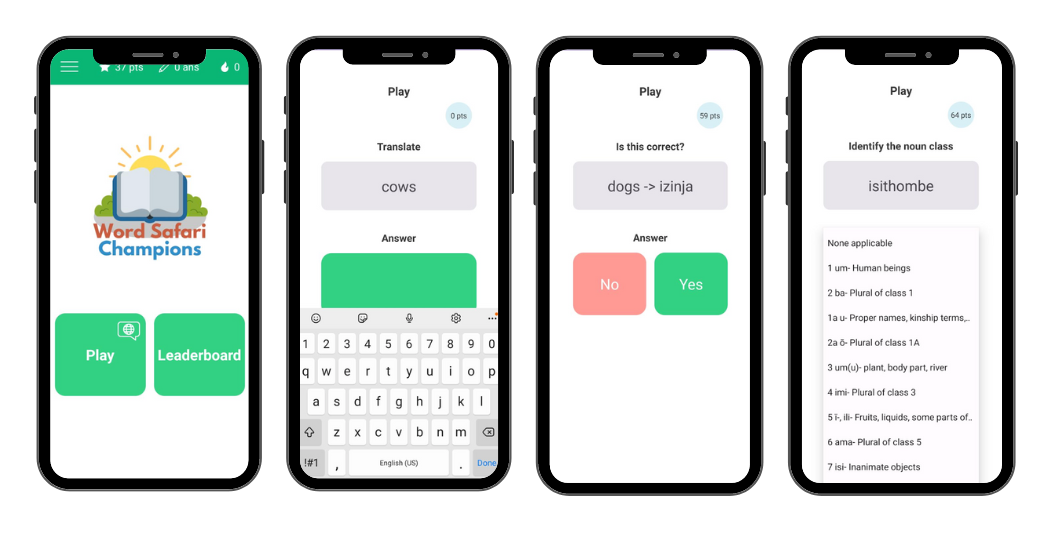

The interface component of the project focuses on developing a solution for improving the accessibility of contributing lexicographical data to Wikidata for two Niger-Congo B languages - isiZulu and isiXhosa. It does this through easy-to-use gamified interfaces that are accessible to speakers of the two languages and these interfaces both collect direct translations and noun class classifications.
One of the problems relating to the under-representation of lexicographical data of Niger-Congo B languages on Wikidata is that the current Wikidata interface is aimed at expert users. This pool of users is small for Niger-Congo B Languages. Other popular Wikidata interfaces aimed at collecting data are for Indo-European languages and do not take the agglutinative structure of Niger-Congo B languages into account. This agglutinative structure refers to how the noun class changes the sentence structure which is important for the sentence generation aspect of the Abstract Wikipedia project and this data needs to be collected along with direct translations.
See if gamified interfaces can be used to motivate users to contribute more lexicographical data.

A high-fidelity prototype was first designed and tested and then two interfaces were developed from the feedback of the prototype. Word Safari Explorers is the basic interface that just uses a points system. Word Safari Champions is the advanced interface with leaderboards, feedback screens, daily streaks, along with the points system (same as the Explorers edition). Both games collect direct translations and noun class classifications and were developed as Android applications in Android Studio with Firebase Realtime Database.